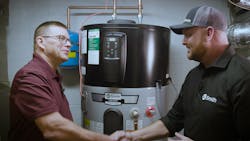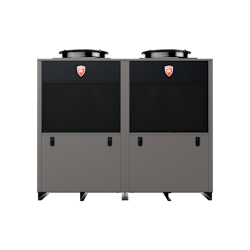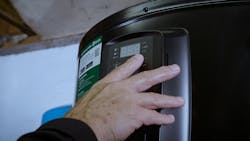The Push Toward Sustainable Heat Pump Technology
ASHLAND CITY & LEBANON, TN — In recent years, there has been a tremendous push in both the residential and commercial water heating industries for more sustainable and efficient solutions that will save homeowners and facility managers money and energy. This push comes as government efforts to decarbonize continue to grow across the country, putting a spotlight on sustainable heat pump technology. But are we moving too quickly? Are federal and state policies and mandates coming too soon? Will heat pumps perform adequately in colder climates? And, is there adequate infrastructure in place to accommodate this the transition, say, from natural gas to electrification?
“Decarbonizing the nation’s economy can’t happen overnight. This is especially true for buildings. It’s going to take time to upgrade local electric grids to support a full transition to support building electrification, but there are things we can do now—like implementing heat pumps and demand-response technology—that can help make it a smoother transition,” says Josh Greene, A. O. Smith Corporate Vice President, Government and Industry Affairs.
“We’ve seen a shift in government mandates and environmental, social and governance (ESG) goals for a while, so we anticipated this push for electrification. At Lochinvar, we’ve always dedicated time and resources to understand how we can best support our customers and the industry during this transition,” says Jennifer Russell, Lochinvar Segment Development Manager, Decarbonization.
But having aggressive goals isn’t necessarily a bad, or in this case, an irresponsible thing. “Setting goals that promote a more sustainable future is critical to the success of our industry. Having aggressive goals gives everyone in the industry a driving force to propel the development of innovative technology,” says Russell.
The Economics of Sustainability
Speaking of money, according to Russell, the Inflation Reduction Act significantly increases tax credits for homeowners who purchase heat pump water heaters, plus tax credits for home builders who implement heat pump water heater (HPWH) technology. In addition, the legislation provides discounts for low-income families to encourage them to purchase heat pump water heaters.
Although the initial cost, including installation, of heat pump water heaters is higher than that of conventional water heaters, says Greene, there are many financing mechanisms, including rebates and incentives to offset those higher upfront costs. That includes not just federal rebates and incentives, but many state and local utility ones as well.
“The Inflation Reduction Act, for example, incorporates broad climate mitigation strategies that will incentive economy-wide decarbonization, including building electrification. The legislation included multiple funding pathways that will support the adoption of heat pump technology. Typically, more efficient technologies tend to come with a higher price tag, so this bill will help provide financial relief to homeowners,” continues Greene.
Greene stresses that in order to support A. O. Smith’s ongoing commitment to support its customers and inform its internal greenhouse gas emission reduction goals, the company’s regulatory team constantly monitors and works with regulators and policymakers on the latest standards, regulations, codes and rebate/incentive opportunities.
(Rebate finders on both the Lochinvar and A.O. Smith websites help ensure that contractors and customers get all the tax credits and incentives they’re eligible for in their communities. To access these benefits, customers can visit both the A. O. Smith and Lochinvar websites and use the ZIP code-enabled rebate finders. Contractors and customers can find available rebates and tax credits for their high-efficiency heat pump water heater.)
Yet, with all of the hoopla surrounding electrification, are heat pumps alone adequate for colder climates such as the Upper Midwest or the Northeast? Lochinvar’s Russell says that while in the past there has been hesitancy when specifying heat pumps in colder climates, that concern is slowly but surely dissipating.
“Heat pump technology has made remarkable strides over the last couple of years and is now able to perform well in a variety of climate zones, including parts of the US that have colder winters. Today, it’s a viable option for consumers in the Midwest and Northeast,” says Greene.
For example, Lochinvar’s recently launched Veritus Air Source Heat Pump Water Heater is an excellent example of how new technology is developing to operate at a higher efficiency in below-freezing temperatures. Additionally, hybrid systems are a great approach to both lower carbon emissions and up-front system costs.
Training U
A. O. Smith University is constantly evolving its class offerings to ensure that it provides contractors with the resources they need to succeed in the field. “We recently reintroduced in-person classes at our state-of-the-art broadcast studio in Ashland City, Tenn., allowing contractors to receive real-time, full-scope demonstrations on a range of A. O. Smith products. We also offer virtual classes which are taught on a two-way meeting platform to ensure participants have a high level of engagement with instructors and the opportunity to ask questions,” says Greene.
Lochinvar offers a wide range of educational resources for contractors, engineers and technicians. Lochinvar University courses cover not just an overview of the company’s technology’s features and benefits but also instruction in practical areas like correct unit size specifications. “We are presently developing several new modules to break down the technology for those that might be just making the transition themselves. For on-demand resources, contractors can check out LochinvarU, which features digital simulators, video tutorials and more,” says Russell.
It’s clear that electrification and the subsequent development of heat pump water heaters are going to play a huge part in the future of the HVAC industry and the economy, but it’s also important to recognize that there are other technologies that will support the future of the industry and the push for sustainability. “Both A. O. Smith and Lochinvar are continually working to improve efficiencies on our products to ensure every customer has a sustainable option that best suits their installation needs,” says Russell.
SIDEBAR
High Efficiency DNA
It’s important to note that federal legislation and local mandates aren’t the only driving factors for change. Many businesses are establishing their own sustainability goals. “We’re finding that our commercial customers are showing great interest in heat pump water heater (HPWH) technology, especially products like the Veritus HPWH, which has a high coefficient of performance (COP) that raises the bar on efficiency and maximizes energy savings. At Lochinvar, high efficiency is in our DNA, so it’s a natural next step for us to introduce Veritus as another high efficiency option for our customers,” says Russell.
Multiple Veritus heat pumps can be banked together to meet the most challenging commercial hot water demands and more precisely match capacity to demand. With its SmartTouch control, the Veritus HPWH takes installation ease to a new level. With new built-in diagnostic tools being incorporated into units like the Veritus, troubleshooting and maintenance are a breeze for facility managers. “Maintaining HPWHs is no more difficult than with traditional water heaters, but it’s important that contractors have the resources and training that will help them be successful when working on a heat pump water heater,” says Russell.
While developing heat pump technology to support the direct need for electrification options, “we also have what we believe to be the most highly efficient gas-fueled products on the market today to indirectly support these initiatives,” says Greene.
For example, A. O. Smith’s Voltex AL HPWH is a game-changer for residential heat pump technology thanks to its integrated leak detection, smart connectivity and updated water connections. The Voltex AL heat pump family features one of the highest Uniform Energy Factors (UEFs) on the market at up to 4.02. The Voltex AL HPWH is also one of the quietest HPWHs on the market, operating at just 45 dBA.


